Enab Baladi’s Investigation Team
In conjunction with the receding military operations and the cessation of battles in most Syrian cities, the issue of reconstruction in Syria has resurfaced during the past months, amid urgent Russian attempt to launch the process, and Moscow’s repeated calls on the international community to participate in the reconstruction to strengthen its control over Syria.
Russia and the Syrian regime have been lately working to form an appropriate image of the situation in Syria, giving way to talks about the process of reconstruction in international forums. It has become impossible for any political or international meeting on Syria to avoid the talk about the receding battles and the regime’s readiness to start the reconstruction process, with the aim of distracting the attention of the international community with a “gold mine” it will provide to the participating companies and from the political process that could result in a resolution leading to the overthrow of the Syrian regime’s president, Bashar al-Assad, Russia’s ally.
The two sides have been reiterating their demands to lift the international sanctions imposed on Syria since the beginning of the protests in 2011, under the pretext of the return to normal life and the sovereignty of “national reconciliations.” However, these demands collide with the continuous European rejection, through officials’ statements, calling for non-participation and paying the reconstruction bill only after a political consensus is reached between all parties under the United Nations’ auspices.
Russian newspaper Kommersant published a copy of what it described as a “secret” document that was drafted at the United Nations on September 2, stating that “the international organization will start working on supporting the reconstruction process in Syria” only after “a real political transition to power” is reached. The Russian media outlets have considered this move as an indication of Europe’s reluctance to start the process, and insistence on overthrowing al-Assad.
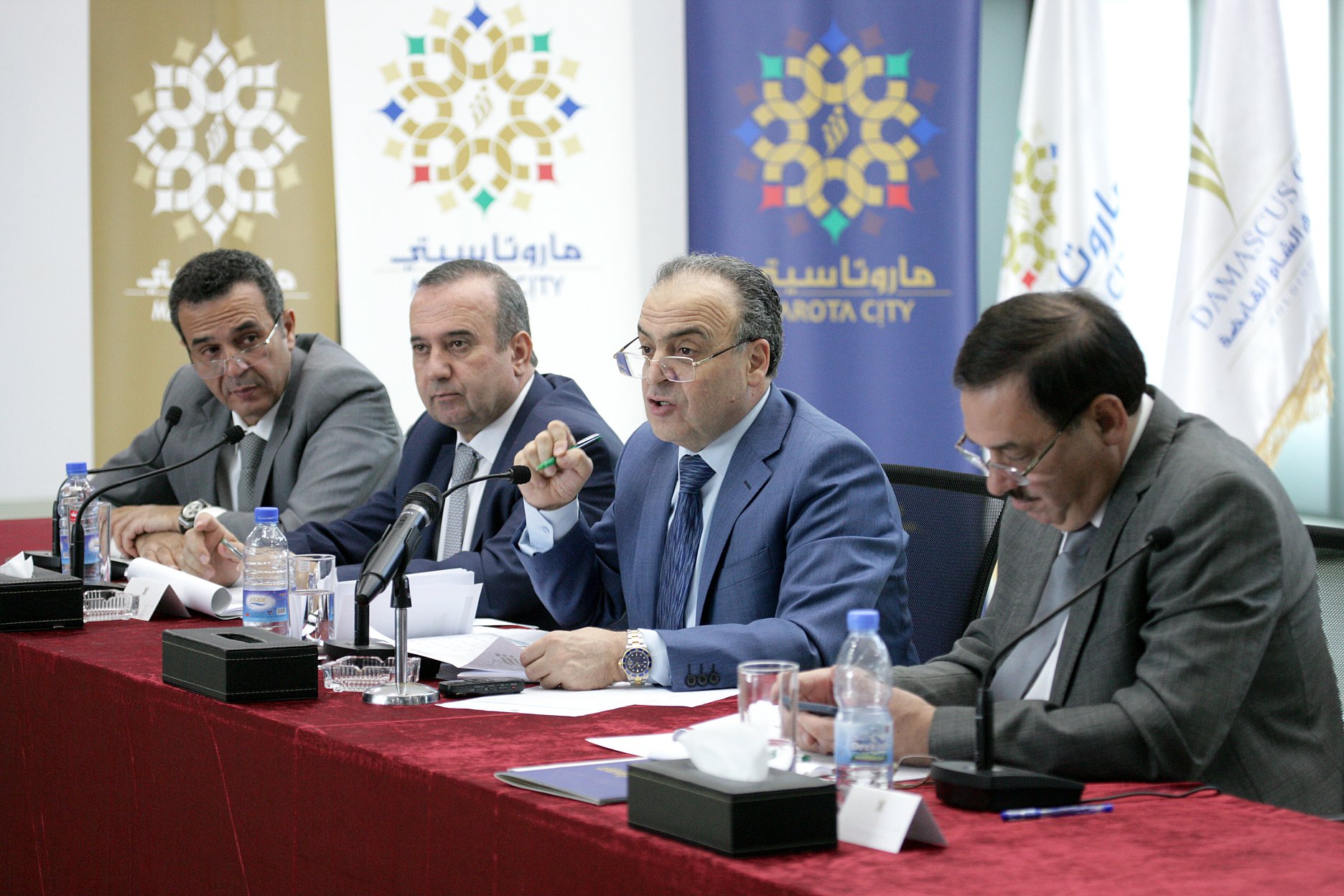
Meeting of the Syrian regime’s Prime Minister, Imad Khamis, with the original owners of Marota City project behind al-Razi area – September 13, 2018 (Marota City Facebook)
Three doors for the entry of the reconstruction companies
There has been great ambiguity surrounding the costs of reconstruction file as its value has been different in the Russian, Syrian and UN estimations. Bashar al-Assad estimated in April that the costs of reconstruction of infrastructure in Syria are worth at least $ 400 billion, while the Chairman of Chamber of Commerce and Industry of the Russian Federation, Sergey Katyrin, estimated in February that they are between $ 200 and $ 500 billion depending on the types of companies that will participate in the process, their mechanism of entering the Syrian market and circumventing the sanctions.
Foreign companies will enter the country through three doors, which the economic analyst Younes al-Karim identified as intermediary companies based in neighboring countries, Syrian companies to be bought by foreign companies or companies with international status.
Ways to access to Syria
Al-Karim pointed out in an interview with Enab Baladi that the first door for the foreign companies’ entry would be through intermediary companies in the United Arab Emirates and Syria’s neighboring countries. The intermediary companies would agree with the regime’s businessmen and contractors, having no economic sanctions, to sign investment contracts.
This means an alliance between the companies to evade the judicial obstacles and economic sanctions. This is referred to as “economic sanctions laundering,” according to al-Karim, who confirmed that al-Assad will resort to this method in case of the continuation of the imposition of the European sanctions on his regime.
The second door will be through foreign companies’ purchase of licensed Syrian companies at home through which they would launch their work in the Syrian market.
The regime’s government has worked in the last two years to establish more than 85,000 companies, according to data from the Ministry of Internal Trade and Consumer Protection, as reported by the pro-regime newspaper Al-Watan on September 19. They are distributed between joint stock companies, limited liability, joint sector and public sector.
These companies, which al-Karim described as “fake,” will sell their licenses to foreign companies, in addition to signing a partnership with companies from neighboring countries, especially Jordan and Lebanon, which are considered gates to enter the operation of “economic sanctions laundering.”
The third door will be through the entry of companies with their international status. This is less likely possible, as the Syrian law does not allow foreign companies to invest in some sectors it considers sovereign, in addition to the high costs of corporate demarcation and documentation. Therefore, this becomes useless in terms of investment, especially in terms of employment, money entry and exit processes and the payment mechanism.
Law circumvention in sovereign projects
The work of these companies will be related to the type of projects to be implemented, according to al-Karim. The infrastructure projects and the vital sectors in the country, which are considered “sovereign,” need huge sums of money and the Syrian State is not able to reconstruct them under the current condition. In addition, the regime’s economic elites have no intention to invest in them as they generate long-term profitability. This will require the entry of international companies through intermediaries belonging to al-Assad’s companies and businessmen.
The Syrian law prohibits the privatization of vital sectors (electricity, water, telecommunications and banks). Nevertheless, the regime may resort to circumventing the law by offering the shares of the company for subscription (with a value of 51 percent), on the pretext of being unable to implement their projects. This will lead to the entry of foreign companies in vital sectors, and their transformation from sectors supporting citizens to profitable sectors.
The projects of reconstruction of cities and residential buildings will be at the hands of the Syrian regime’s companies and under its control in partnership with foreign companies that will finance the process in return for the benefits that will be paid for them, according to al-Karim.
Recreational projects (clubs, swimming pools, amusement parks) will also be at the hands of the regime’s companies, which will build them under international standards, provided that the management will be granted to foreign companies in exchange for the regime’s obtainment of part of the management.
Consensual contracts with the regime
These companies’ investment contracts will be mostly consensual with the regime, which will in turn put the contracts up for auctions and tenders to show some kind of competition and transparency. However, in case of the presence of a strong and important competitor for the regime, the latter will sign a consensual contract with him, similar to what happened with the signing of mills contracts with Iran before withdrawing and giving them to Russia, according to economic analyst Younes al-Karim.
These companies would aim at generating profit from the reconstruction process and the largest possible liquidity, running the funds and then the profit-generating investment. This is the fundamental goal of companies of the capitalist system, which is generated through the creation of the citizen’s needs and their fulfillment in stages, in a way he would always have new needs other than the previous ones, leading to the continuous generation of profit.
Violations the reconstruction companies commit in Syria
With the development of international law in view of the continuous increase in commercial activities, it has become necessary to take advantage of its provisions regarding the situation in Syria. The urgency of this is increased by the declining economic situation during the years of war in Syria, as well as the serious violations that have been and are still being committed on the Syrian land during these years.
It is necessary for the companies that entered Syria in the past period and will enter the Syrian market in the future to comply with the rules of the Syrian Penal Code. However, the practices of some of these companies may be legitimate and not criminalized by the Syrian Penal Code, while such wrongful actions constitute a violation under international humanitarian law.
Despite the imposition of economic sanctions on a number of Syrian companies and businessmen, some of them can evade these penalties. As such, the targeted company owners can establish fake businesses to cover up their dishonest activities or become the CEOs of enterprises that are directed by more discreet individuals in order to camouflage the relationship between the sanctioned businessman and the company.
Charged with contribution in criminal activities
International law cannot directly criminalize or accuse companies of committing abuses. However, the suspected enterprise can be held responsible for violating local human rights laws related to its country of origin or the countries in which its business operations are conducted.
According to the Rome Statute of the International Criminal Court and other statutes, “a person may be responsible for committing, planning, ordering, initiating or instigating a crime or providing assistance, and this may include the provision of moral aid with prior informed consent and knowledge.”
Companies operating in conflict zones within a given country are held accountable under international humanitarian law, the law governing armed conflict, which imposes the duties and forms of humanitarian protection granted to individuals during the time of war.
During the years of war, Syria was the scene of grave human rights violations. The Syrian regime was the main actor in most of these abuses, whether through bombing, forced displacement or detention, as well as pillaging civilian properties.
Some foreign companies committed these violations, although not in a direct manner. Others, which consider entering the Syrian reconstruction market, may be involved in breaching the international law. Such involvement will expose them to accountability under the law or social pressure, which may damage these companies’ reputation worldwide, at the very least.
Property rights seized under the reconstruction process
One of the most serious violations that may be potentially committed by construction companies entering Syria is the seizure of civilian properties, both inside and outside the country, in accordance with Decree No. 66, which regulates the area of Basateen al-Razi, Mezzeh and Kafarsousa.
Law No. 10 raised the fears of many, especially those living outside Syria, as it allows companies to become involved in the violation of an important and internationally protected human right, which is the right to property. Such law gives the original owners only a month to prove their ownership of the property under question.
Reconstruction works involve building on lands without making sure that there are remnants of war or mass graves, which constitutes a flagrant violation of human rights.
According to Mohammed al-Abdallah, executive director of Syria Justice and Accountability Centre (SJAC), the construction process on lands or properties that were forcibly acquired without paying compensation to the original owner is an issue which can result in pressing charges within the courts of the violating company’ s country of origin.
Bribes paid by companies to assist or incite crimes or to promote a crime previously committed through the reconstruction process are considered a violation of international law.
Furthermore, companies which provide goods, services, information, and logistic assistance or financial support to the main culprits, such as in the case of the chemical attacks, violate the law, as is the case for those providing transportation to displace the populations of Homs, Eastern Ghouta, Darayya and many other areas where Syrians have been forcibly displaced.
Whether or not corruption is linked to an international criminal activity, it constitutes in itself a violation of human rights, as in the case of the siege and denying civilians food and medicine. Companies dealing with the Syrian regime that impose a siege on civilians are contributors to this form of abuse.
Companies involved in reconstruction-related deals with the Syrian regime may be responsible for assisting and inciting to finance crimes, even if such companies are unaware of the source of its financial profits handed over by the authorities. It is sufficient to prove that the mere existence of such funds allows the offender to pay in other occasions for harmful purposes or violations.
Companies are responsible for participating in violations in case of purchasing goods repeatedly or periodically from a supplier involved in war crimes and human rights violations in Syria. The company is supposed to know the party with which it is cooperating and contracting, and whether such party is involved in violations. Thus, being unaware of the aforementioned details does not prevent legal consequences.
Despite all the evidence that construction companies implementing the reconstruction plan in Syria may be able to cover war crimes committed in Syria, many Syrians are not fully aware of this possibility, as a poll conducted by Enab Baladi, directed to followers and readers, has shown.
Enab Baladi asked through its website the following question: Can reconstruction projects cover the crimes committed in Syria?
69 percent of the 500 participants who took part in the poll answered “No,” while only 31 percent said “yes.”
Platforms for regulating and monitoring the enterprises involved in the reconstruction process
The Syrian Legal Development Program has established the Human Rights and Business Unit (HRBU) to monitor companies involved in the reconstruction process and its funds, in addition to documenting the violations committed by financial institutions, whether banks or firms, in cooperation with Syrian civil society organizations.
The director of the Syrian Legal Development Program, Ibrahim al-Albi, said that the program seeks to sensitize civil society organizations about international laws that regulate the stages of reconstruction. “Although international law is often subject to political considerations, it is a tool for controlling unlawful practices and violations,” he added.
Al-Albi explained the motive behind creating the (HRBU): “the team of the Syrian Legal Development Program noticed a shift in the discourse regarding the subject of reconstruction in Syria. There are problems manifesting in reality, regarding human rights and the way such rights are dealt with legally.”
He rejected the saying “since the war is over, reconstruction must start,” stating that such opinion has provided an outlet for forgetting the victims and turning a blind eye to the prosecution of criminals. “Monitoring companies and reconstruction funds, as well as meeting companies and states engaged in the process, became a necessity,” he clarified.
The different civil society organizations are responsible for reaching international platforms, not only to document violations, but also to hold these companies accountable for such breaches and to demand compensation.
International and local courts
Companies can be held accountable before international or local courts, in the enterprises’ countries of origin or in other countries by means of the principles of universal jurisdiction, which indicate that each state has the right to sue a company in case of human rights violations.
This means that any local court can hold a company accountable for violations and international criminal activities, even if such breaches are perpetrated outside its territory, or the plaintiff and the defendant are outsiders.
In relation to criminal proceedings involving war crime charges against CEOs, trials of this kind require evidence as well as witnesses, and might take a lengthy litigation sometimes. As such, some Syrian civil society organizations, in cooperation with the HRBU, have considered the possibility of prosecuting those companies, which are proven to have committed war crimes and human rights offenses, through the Liaison Committee.
The Liaison Committee’s work mechanism
Prosecution before the Liaison Committee, the link between the complainant and the civil judiciary of a state, can be put forth through a “complaint” rather than a “claim,” according to the principles of universal jurisdiction. The difference between the complaint and the claim is that the complaint does not trigger a general allegation against the defendant, but it does prompt the competent authorities to investigate the incident for which the complaint was filed.
If the complaint has been found to be correct, the action for damages will be filed against the violating company or it will be prevented from participating in the tender process of reconstruction in Syria, in case its participation was considered as a violation.
The complaint is based on a violation, either of the Organization for Economic Co-operation and Development (OECD) or the United Nations Guidelines for the working mechanism of these companies.
Arab and International companies involved in violations in Syria may contribute in the reconstruction
Several violations committed during the Syrian war revealed that many countries and international companies committed legal and human rights violations against the Syrian people, although some of these have occurred unintentionally and the company itself was unaware of the fact that its business in Syria has been channeled into illegal schemes.
In this context, some others fear that these companies will contribute in the future to the reconstruction of Syria, in case the country would witness a serious step toward this process. This may provide them with an opportunity to cover the violations they or any other parties have committed on Syrian territory.
The following are judicial and human rights cases filed against Arab and international companies for violating international humanitarian law in Syria, or financing “terrorist” operations there.
“Lafarge” is facing charges of “sponsoring terrorism”
French-Swiss cement company, Lafarge, is subject to investigation in France following charges of financing terrorist activities in Syria that led to committing crimes against humanity.
The French judiciary brought these charges against the company in May, noting that it had concluded agreements with extremist groups, including ISIS, through intermediaries in order to maintain the activity of its factory in the region of Jalabiya, northern Syria, during 2013 and 2014.
Lafarge acknowledged that its branch in Syria was involved in “supporting terrorism.” In a statement issued in April 2017, Lafarge admitted that “the internal investigation proved that money had already been paid, which contravenes with its policies, and that a number of measures taken to carry on the safe operations at the factory were unacceptable. Besides, there are some serious errors in the decisions, which resulted in violating the existing rules of conduct.”
However, the French authorities are still investigating whether the parent company could have been involved in supporting the armed groups inside Syria, and putting the lives of the employees of the Syrian branch at risk.
The French judiciary believed that the company paid about 13 million Euros to armed groups to maintain the activity of it factory between 2011 and 2015.
Syrian businessman Firas Talass is facing charges for ” being responsible for transferring money from the company to armed groups after he broke away from the regime and settled in Dubai,” as he owned shares at the Syrian branch of Lafarge when he was one of the regime loyalties back then.
Three Belgian companies involved in the chemical file
In April, the Belgian judiciary charged three Belgian companies with exporting chemicals to Syria that could be used to produce nerve gas and Sarin, under a lawsuit filed by human rights organizations in the country, including Syrian Archive, bringing it before the court.
According to the lawsuit, companies exported 96 tons of isopropanol to Syria between 2014 and 2016, but defense lawyers justified that the material was also used in “legitimate” industries, such as paint remover.
They added that the three companies operating in the chemical and transport sector, including Dunmar Logistics, are sending chemicals to Syrian companies that manufacture paint, and have been dealing with it for more than ten years.
As for the sanctions imposed by the European Union on the Syrian regime, companies said they were not aware of 2013 sanctions, which made the export permits “mandatory,” noting that Belgian customs were aware of shipments.
However, during an interview with France-Press Agency (AFP), the Belgian Finance Ministry declared that the companies “forged the customs permits, as well as the name of the party that will receive the shipments.”
Swiss chemical materials shipment to the regime
The investigations carried out by Radio Télévision Suisse (RTS) proved that five tons of the “isopropanol” primarily used in the chemical industry, including toxic “Sarin,” were exported to Syria in 2014.
According to the report, which was broadcast on television on April 25, six months after the Organization for the Prohibition of Chemical Weapons (OPCW) managed to destroy 120 tons of “isopropanol,” this substance was exported to Syria without the Swiss government’s objection.
However, the State Secretariat for Economic Affairs of the Swiss government stated that the company that imported these materials was a Syrian company, pointing out that the ministry does not have any proofs of a link between the company and the Syrian regime.
According to UN reports and trade statistics, Switzerland and Belgium are the only European countries that exported these substances to Syria. Countries such as Lebanon, the United Arab Emirates and South Korea are exporters too.
Name of a Jordanian chlorine company on a regime’s missile
The Syrian Institute of Justice published photographs depicted the name of the Jordanian company al-Baha (BCC), a manufacturer of chlorine and soda, on the missiles used by the Syrian regime in November 2016 to bomb Aleppo. Human rights organizations accused the company of supplying the Syrian regime with chlorine and chemicals, which have been used during the shelling.
Enab Baladi contacted the company, which confirmed that it is manufacturing the chemicals used to sterilize water only, and has nothing to do with missiles and weapons, and stated that it has stopped supplying Syria with such substances after 2011 revolution.
According to company officials, the United Nations Children’s Fund (UNICEF) is responsible for exporting the chemical substances produced by the company for the sake of water sterilization.
Al-Baha is one of the largest companies in the Middle East producing chlorine used in water treatment, in addition to other chemicals.
The company produces caustic soda, liquid soda, liquefied chlorine gas, hydrochloric acid and sodium hypochlorite. It supplies the needs of Jordan and neighboring countries with basic chemicals, which contribute to water purification, production of detergent, oil and other uses.
Syrian activists have already accused Arab companies, which are manufacturing chemical and ammunitions, of collusion with al-Assad regime, including the Egyptian company Shobra, whose name is printed on ammunition cans in Aleppo.
if you think the article contain wrong information or you have additional details Send Correction
النسخة العربية من المقال
-
Follow us :












 Syrians walking amid rubble in Deir ez-Zor (Reuters)
Syrians walking amid rubble in Deir ez-Zor (Reuters)





 A
A
A
A
A
A
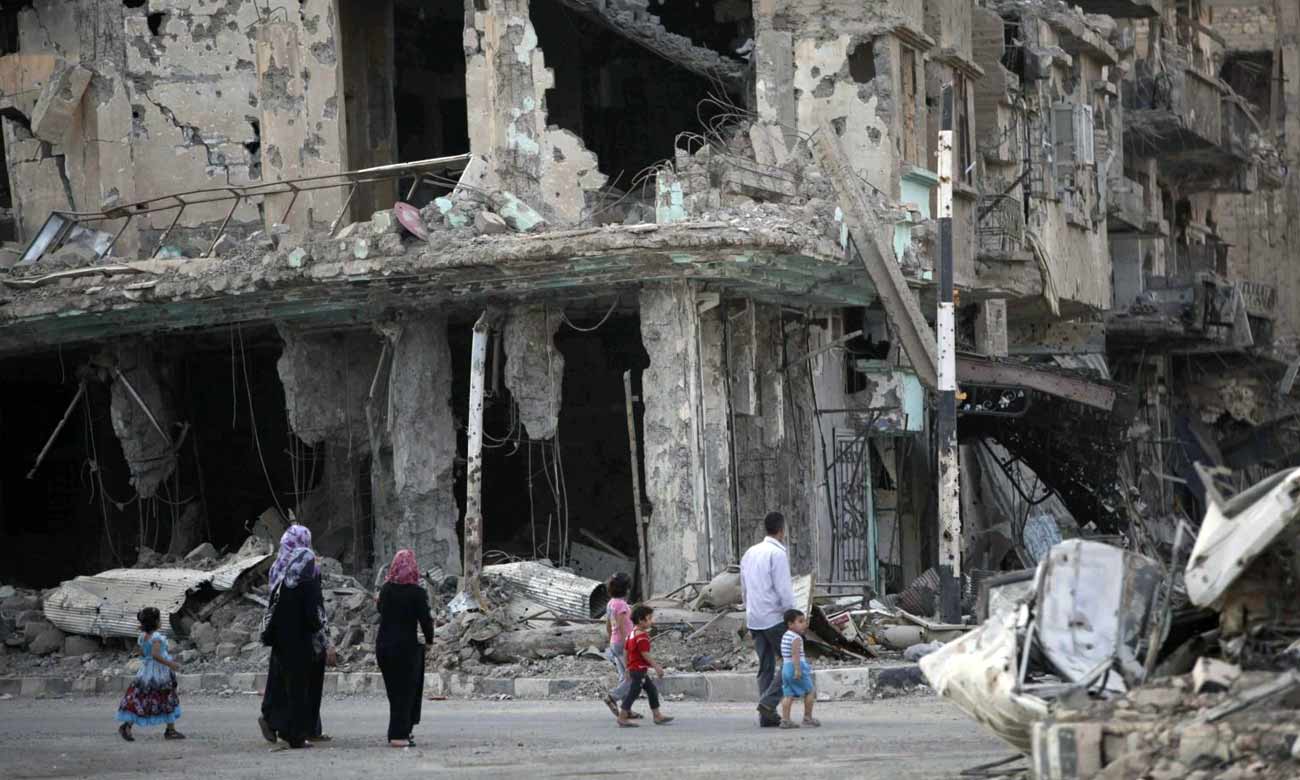
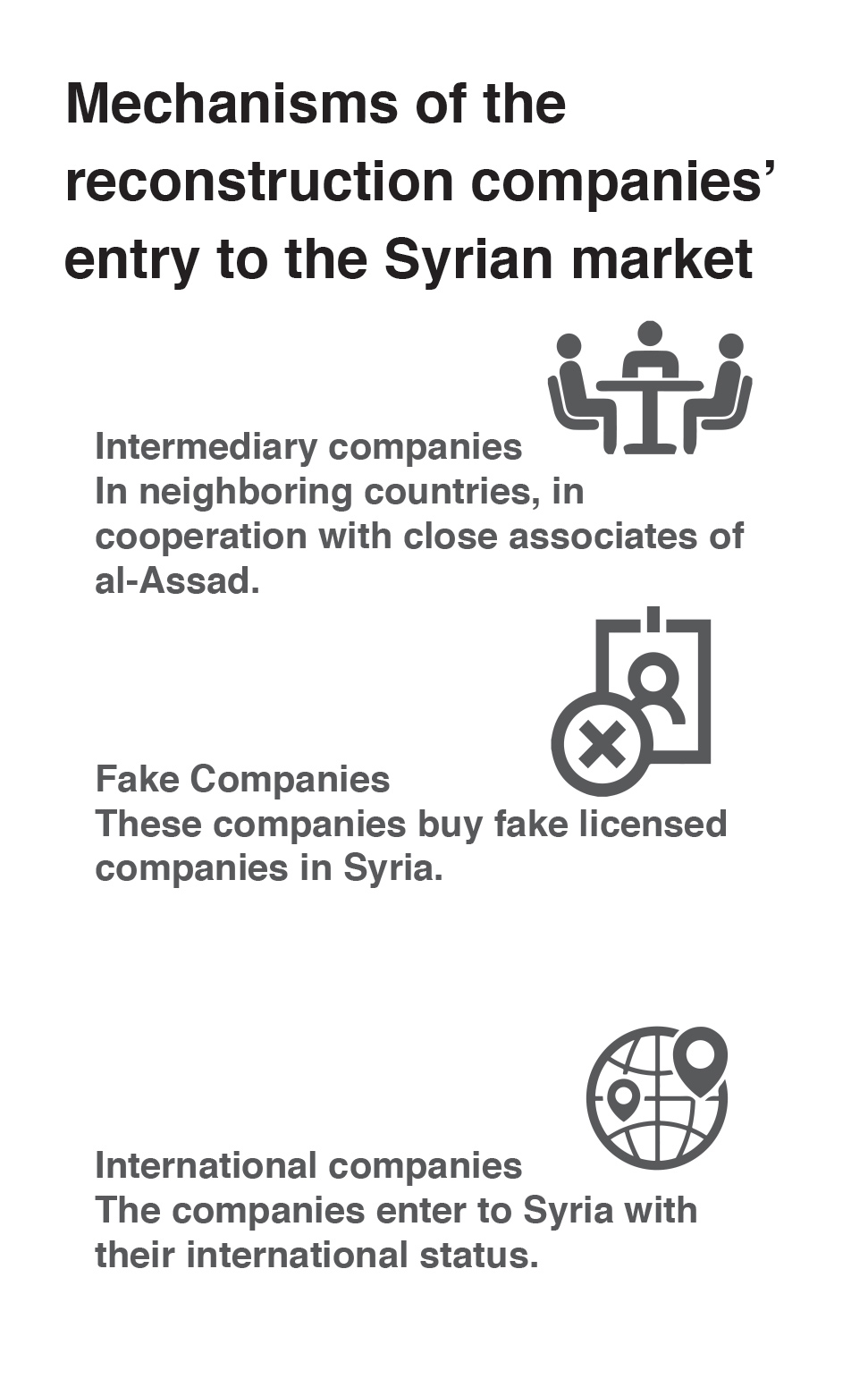
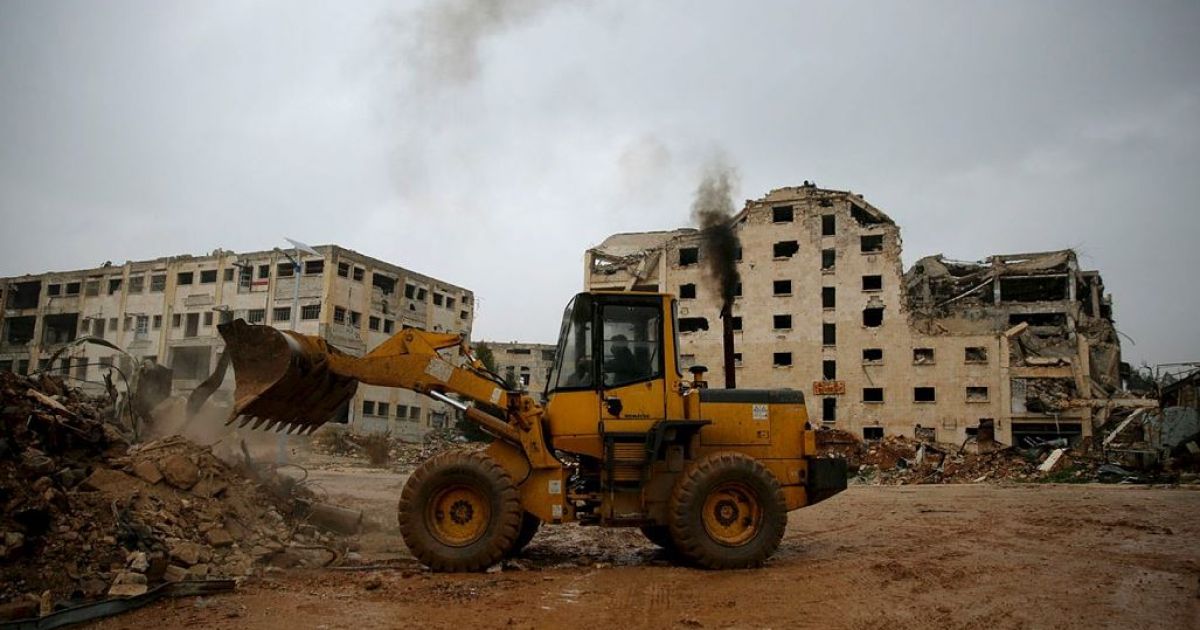
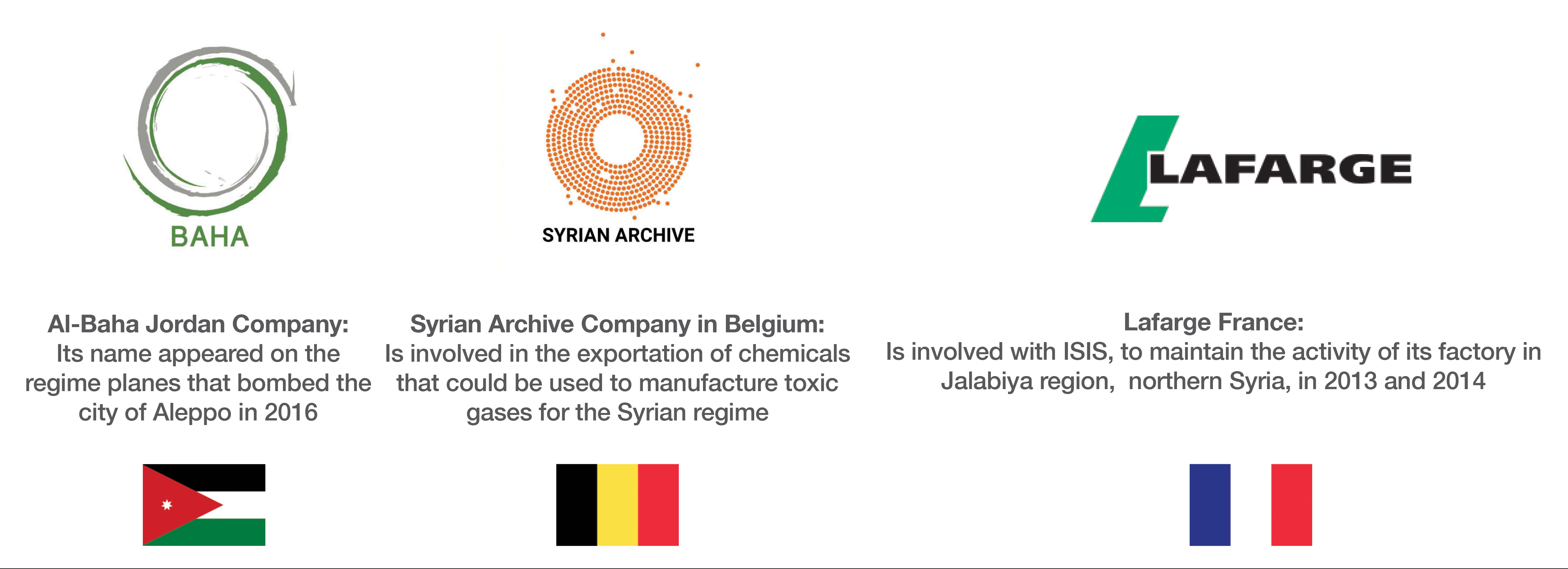


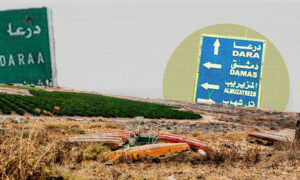
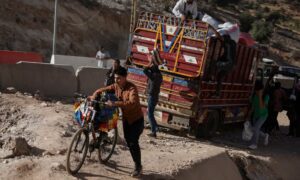


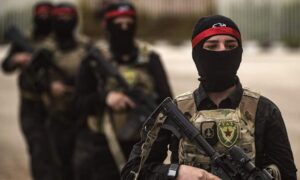
 More In-Depth
More In-Depth